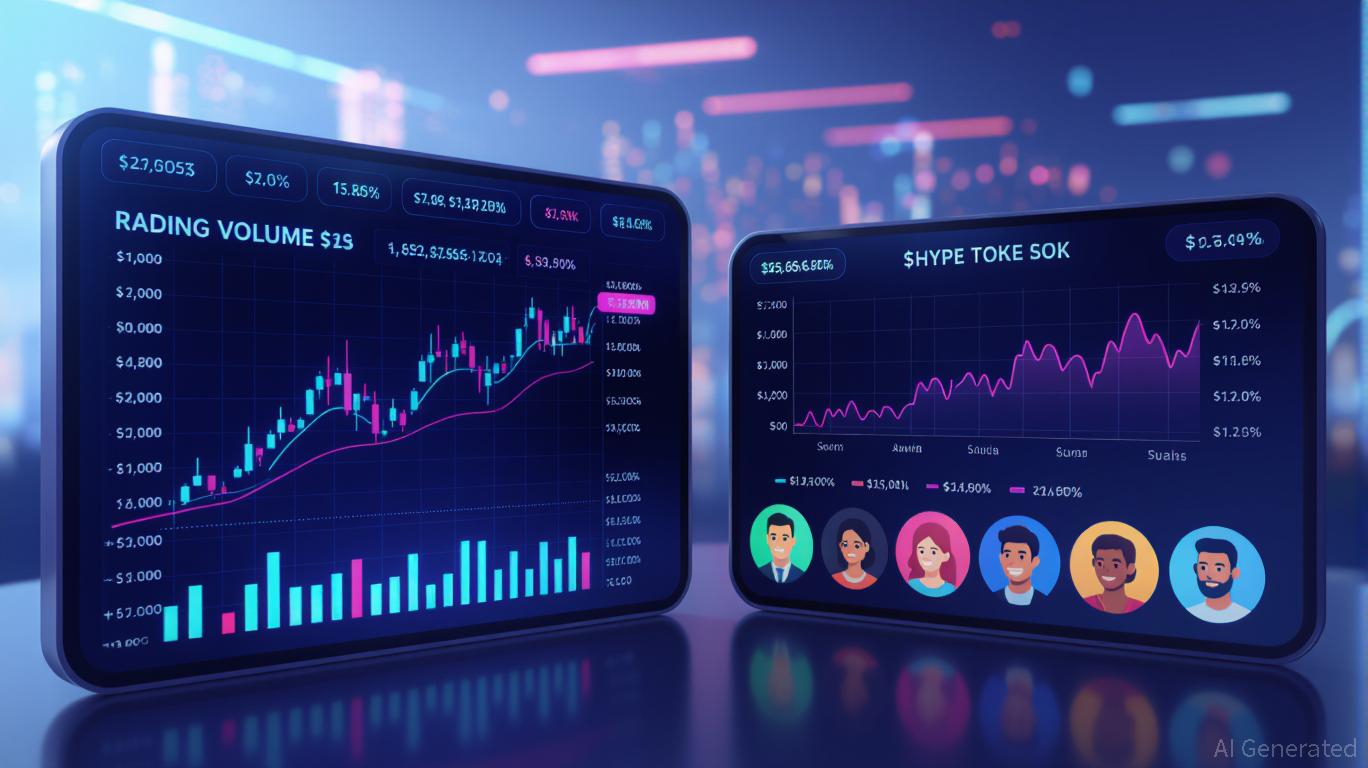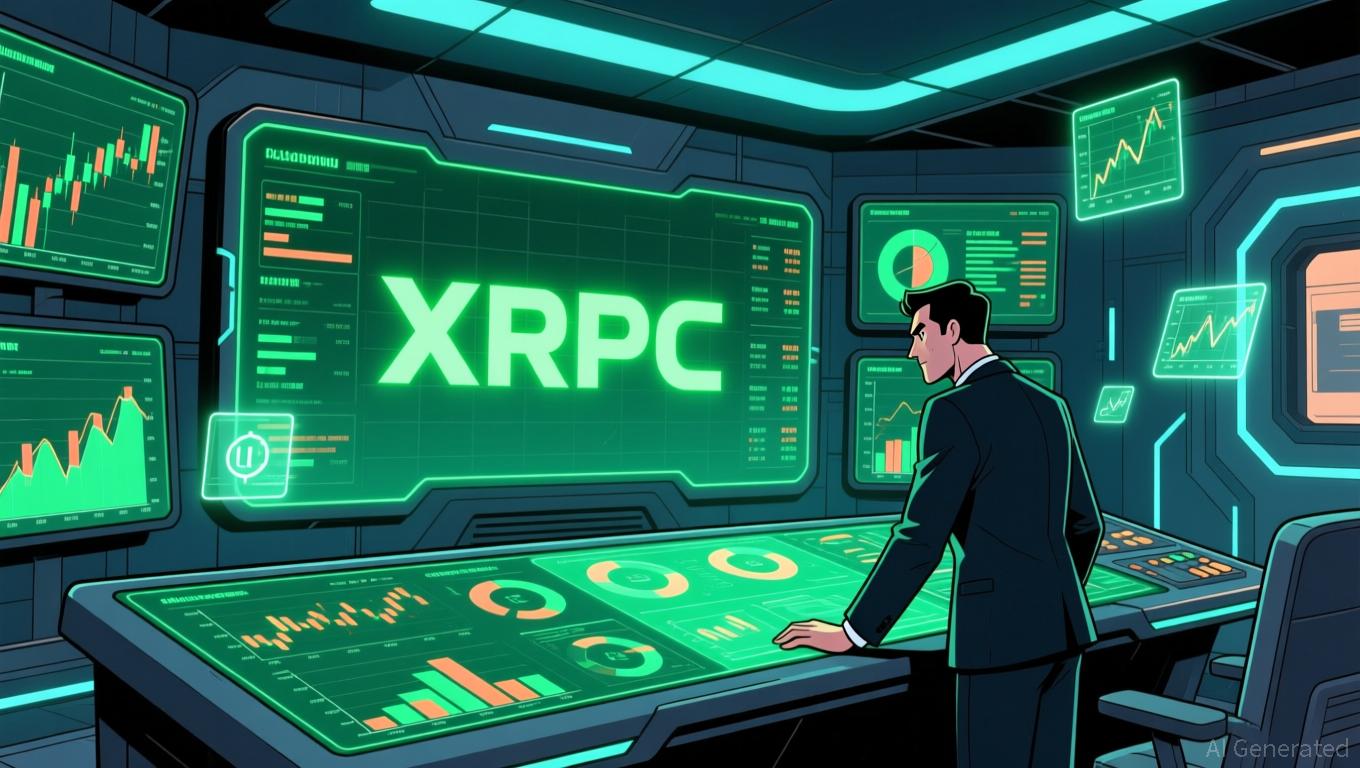Bitcoin Updates: Wall Street Connections Heighten Crypto Risks as Bitcoin Reaches Lowest Point in Six Months
- Bitcoin hit a six-month low at $103,778 amid AI-driven economic fears and geopolitical tensions, driven by leveraged liquidations and risk-off sentiment. - Institutional support for Bitcoin ETFs remains strong, with $130B in assets despite $2.9B in outflows, as BlackRock's IBIT ($80.58B) attracts inflows. - Trump's $2,000 tariff proposal briefly boosted Bitcoin 2% but intensified trade tensions, highlighting crypto's sensitivity to macroeconomic policy shifts. - Technical indicators show sustained bearis
Bitcoin reached its lowest point in six months as investors adopted a risk-averse stance, spurred by concerns over AI-induced economic changes and rising geopolitical strains. Professional traders are currently maneuvering through a challenging environment shaped by institutional strategies and unpredictable macroeconomic conditions. The cryptocurrency

The recent selloff happened alongside a rally in crypto markets after President Donald Trump revealed a $2,000 tariff dividend for Americans, which
Technical analysis pointed to ongoing bearish momentum. Bitcoin’s recent efforts to climb back above $108,000 were blocked by resistance at short-term moving averages (30-day at $109,671 and 60-day at $112,949),
There is a split among professional traders. Those focused on the short term are tightening their stop-losses amid wild price swings, while long-term investors, especially those holding Bitcoin ETFs, are sticking with their positions,
Disclaimer: The content of this article solely reflects the author's opinion and does not represent the platform in any capacity. This article is not intended to serve as a reference for making investment decisions.
You may also like
UN Criticizes Brazil Over COP30 Security Shortcomings and Infrastructure Issues Amid Rising Concerns About Credibility
- UN Climate Chief Simon Stiell condemned Brazil for COP30 security failures after 150 protesters breached the venue, damaging property and injuring staff. - Letter highlighted unsecured doors, inadequate personnel, and infrastructure issues like malfunctioning AC, water leaks, and substandard delegate facilities. - Hosting in Belém, a city with limited infrastructure, drew criticism as delegations face lodging shortages, unfinished pavilions, and payment system challenges. - UN demanded urgent fixes to sa
Hyperliquid's Recent Rise in Attention from Retail Investors: The Impact of Retail-Fueled Liquidity on the Evolution of DeFi Trading Patterns
- Hyperliquid's retail-driven growth, fueled by token airdrops and buybacks, boosted 2025 trading volume to $320B and protocol revenue to $86.6M. - The platform's 6.1% global derivatives market share and $2.15B TVL highlight its impact on DeFi liquidity and institutional adoption. - Challenges include regulatory scrutiny and a 11.2% institutional market share decline due to tokenomics issues like a $10.8B HYPE unlock over two years.

"Trump's Strategy in Venezuela: Parallels with Panama and a Critical Confrontation"
- Trump escalates pressure on Venezuela via tariffs and military buildup, including the USS Gerald R Ford deployment, to disrupt Maduro's drug-linked regime. - The Supreme Court's pending tariff ruling risks a $2 trillion financial blow, with Trump warning of "national security catastrophe" if struck down. - Trump hints at reduced India tariffs to strengthen ties, while 58 Latin American nations condemn U.S. force use at a regional summit. - Maduro's regime escalates military mobilization, framing U.S. nav

XRP News Today: Canary XRP ETF Gains Regulatory Approval, Indicating Growth in Crypto Industry
